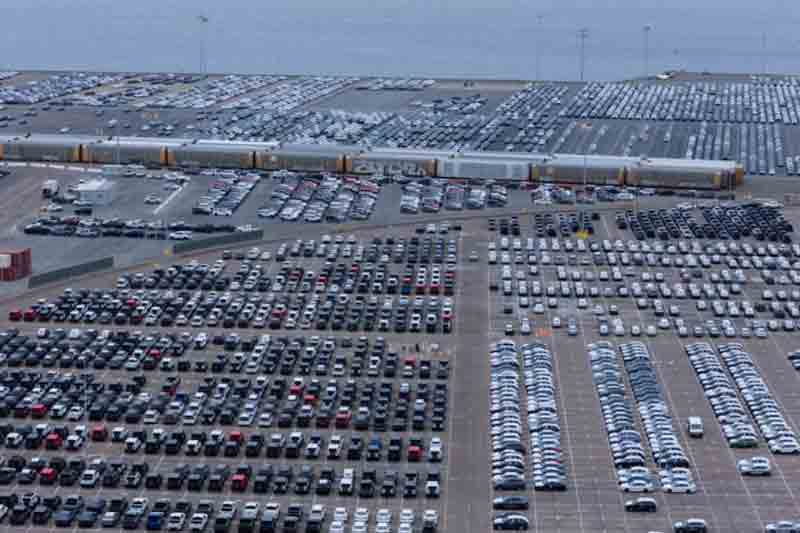The United States will assess the requests made by Russia following Moscow’s “in principle” agreement to a ceasefire brokered by the U.S. with Ukraine in the Black Sea, aimed at ensuring safe navigation, U.S. Secretary of State Marco Rubio stated on Wednesday.
On Tuesday, the U.S. announced distinct agreements with Ukraine and Russia regarding the Black Sea, which were established after discussions in Saudi Arabia. These agreements are intended to facilitate safe navigation, halt attacks, and prevent the military use of commercial vessels.
Russia launched its invasion of Ukraine in February 2022. U.S. President Donald Trump, who assumed office on January 20, has been advocating for an end to the conflict amid a swift warming of relations between the U.S. and Moscow, which has raised concerns in Kyiv and among European allies.
“Following our meeting in Saudi Arabia, the Russians outlined several conditions they wish to see fulfilled in order to proceed, so we will evaluate those,” Rubio informed reporters during his visit to Jamaica on Wednesday. He indicated that U.S. officials would strive to “gain a clearer understanding of the Russian stance and their requests in return, after which we will present this to the President and determine the next course of action.”
Russia’s demands are already well-documented. The conditions articulated in a Kremlin statement on Tuesday—such as the removal of restrictions and sanctions on a significant agricultural bank, food and fertilizer exporters, and Russian vessels—largely reflect the requests made by Moscow two years ago during negotiations to extend a Black Sea agreement initially reached in July 2022.
The 2022 agreement, facilitated by the United Nations and Turkey, was designed to enable the safe export of Ukrainian grain from the Black Sea. An accompanying three-year arrangement included U.N. support for facilitating Russia’s food and fertilizer exports. However, Russia withdrew from the Black Sea agreement in July 2023, citing unmet demands regarding its food and fertilizer exports. U.N. officials have continued to engage with Russia to address its export-related concerns.
In a letter addressed to the U.N. in March 2023, Russia expressed its desire for the reconnection of the Russian Agricultural Bank (Rosselkhozbank) to the SWIFT payment system, from which it was excluded by the European Union in June 2022. Additionally, Russia requested the resumption of agricultural machinery and spare parts supplies, the removal of restrictions on insurance and port access for Russian vessels and cargo, and the unblocking of accounts and financial operations for Russian fertilizer companies.
Although Russian food and fertilizer exports are not directly impacted by Western sanctions, Moscow has indicated that limitations on payments, logistics, and insurance have created significant obstacles to shipments. On Wednesday, Rubio highlighted that Russia’s requests included the lifting of certain EU sanctions. The European Commission stated that a primary condition for lifting or modifying sanctions would be the complete withdrawal of Russian forces from Ukraine.
Following discussions between U.S. and Russian officials in Saudi Arabia, the White House announced on Tuesday that, as part of a ceasefire agreement, it had consented to “assist in restoring Russia’s access to global markets for agricultural and fertilizer exports, reduce maritime insurance costs, and improve access to ports and payment systems for these transactions.”
Discover more from Defence Talks | Defense News Hub, Military Updates, Security Insights
Subscribe to get the latest posts sent to your email.





